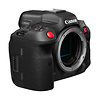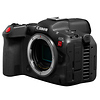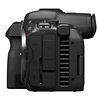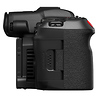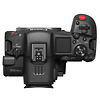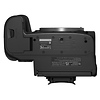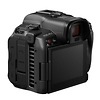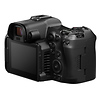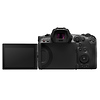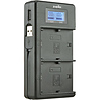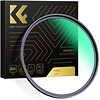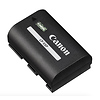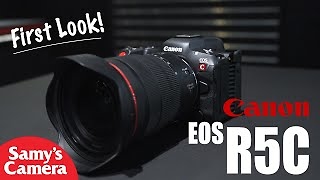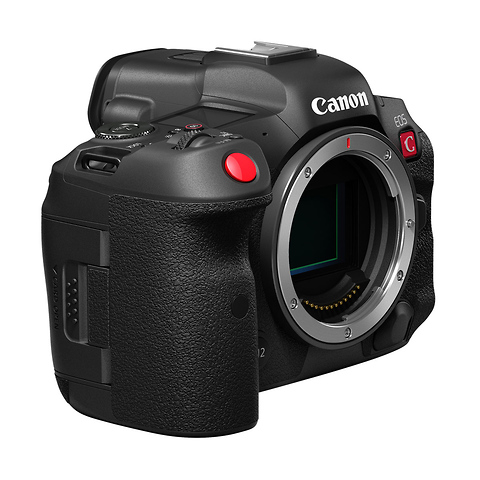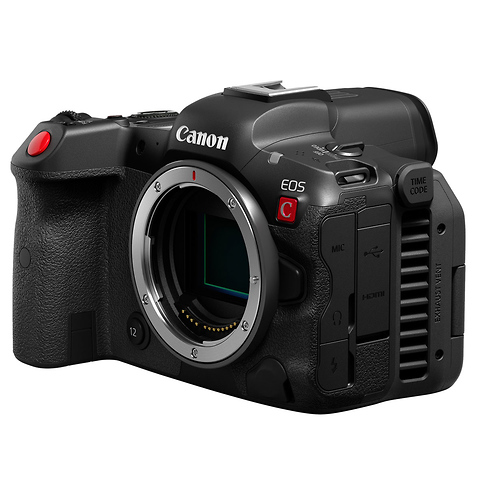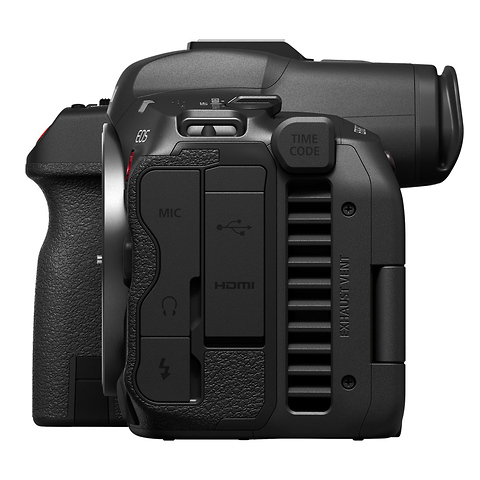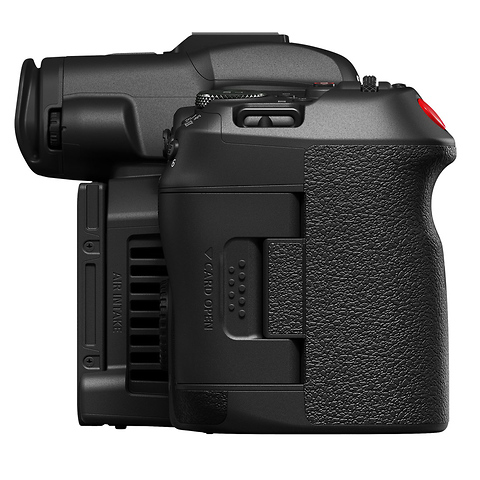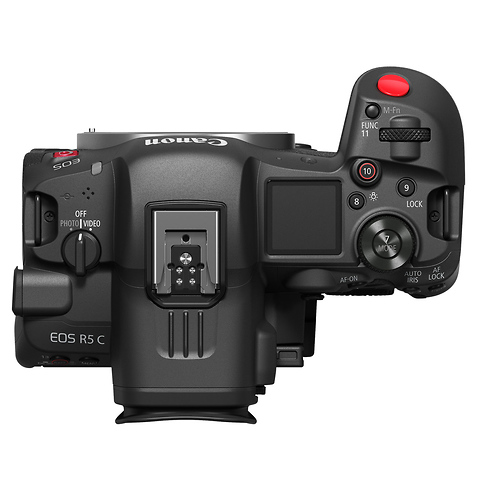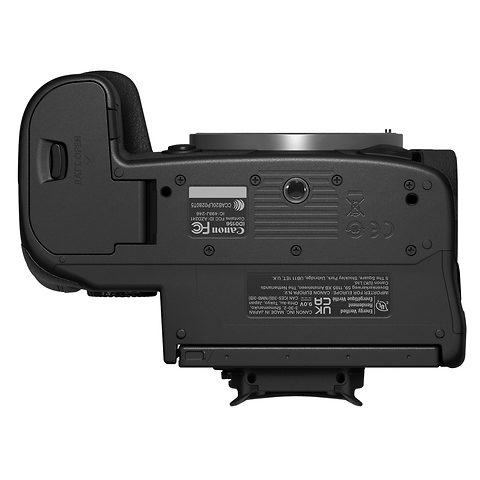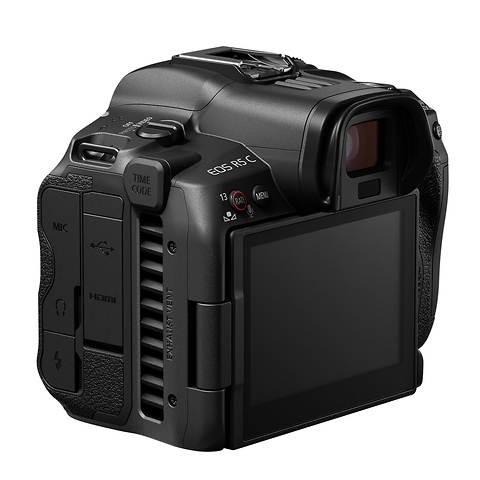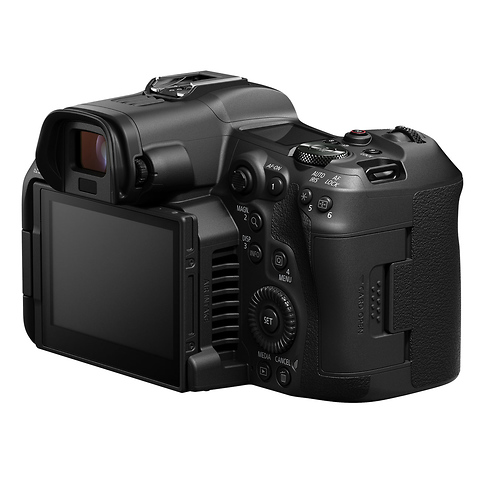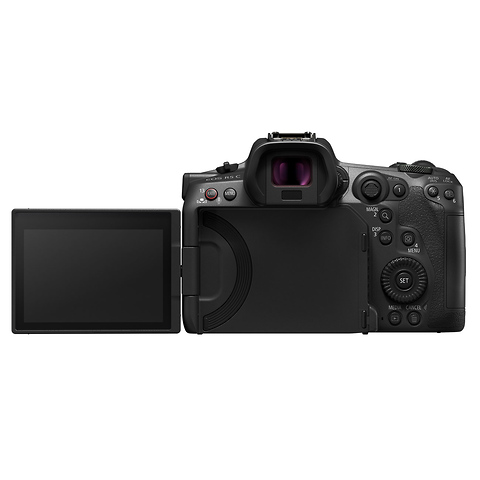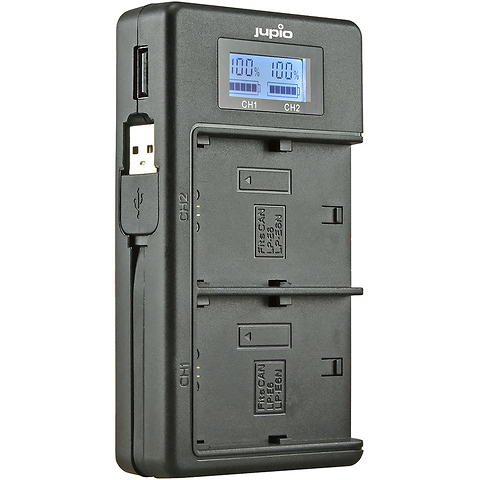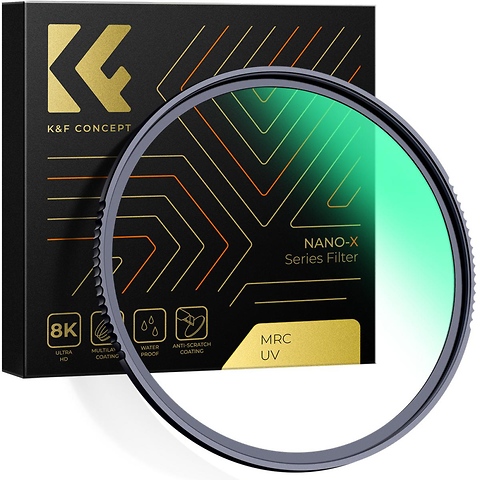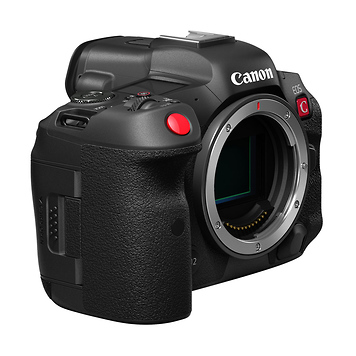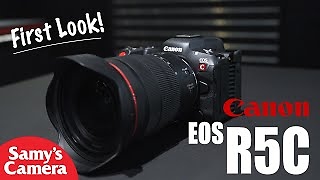My Cart
Samy's Camera Credit Card

Where can I use my Samy's Camera Credit Card?
Your Samy's Camera Credit Card can be used to make purchases online, at samys.com, or at any of our Retail Locations.
What are the current special financing offers?
6 Month Special Financing* on orders totaling $199 and above.
12 Month Special Financing* available on orders totaling $599 or more.
Order minimum excludes sales tax, shipping fees, and discounts. To receive special financing, simply pay with the Samy's Camera Credit Card and select the financing option during checkout.
How will I receive my Samy's Camera Credit Card Information?
Applying for an Samy's Camera Credit Card is fast and easy. The application is subject to approval by Synchrony Bank. If approved, we'll automatically add your Samy's Camera Credit Card to your account at checkout. Select the Samy's Camera Credit Card under the payment information to pull up your available account information. You will receive your Samy's Camera Credit Card in the mail within 7-10 business days after applying.
How can I manage my account?
For Samy's Camera Credit Card accounts, you can pay your bill online or modify your account settings by clicking here:
My Account
Can I ship to an alternate address?
All orders must be shipped to the billing address on file for final approval of transaction. We can not ship to an alternate address.
Pay By Phone:
Contact Synchrony Customer Service 24/7 at (866) 396-8254.
Pay By Mail:
To ensure your payment is on time, mail in advance of the payment due date. Send payment to:
Synchrony Bank
P.O. Box 960061
Orlando, FL 32896-0061
Samy's Camera Credit Card, issued by Synchrony Bank.
No Interest if Paid in Full Within 6 or 12 Months*
On purchases of $199 or more (6 months) or $599 or more (12 months) made with your Samy's Camera Credit Card. Interest will be charged to your account from the purchase date if the promotional balance is not paid in full within 6 or 12 months. Minimum monthly payments required.
*All orders must be shipped to the billing address on file for final approval of transaction. Qualifying purchase amount must be on one receipt. A Promo Fee does not apply to this offer. No interest will be charged on the promo balance if you pay it off, in full, within the promo period. If you do not, interest will be charged on the promo balance from the purchase date. The required minimum monthly payments may or may not pay off the promo balance before the end of the promo period, depending on purchase amount, promo length and payment allocation. Regular account terms apply to non-promo purchases and, after promo period ends, to the promo balance. New Accounts as of 7/16/24: Purchase APR 34.99%. Penalty APR 39.99%.Min Interest Charge $2. A promo fee will be charged equal to 2% of the amount financed on an equal payment no interest promotion of 18 months or more. Existing cardholders: See your credit card agreement terms. Subject to credit approval. We reserve the right to discontinue or alter the terms of this offer anytime.
** New Accounts as of 7/16/24: Purchase APR 34.99%. Penalty APR 39.99%.Min Interest Charge $2. A promo fee will be charged equal to 2% of the amount financed on an equal payment no interest promotion of 18 months or more. Existing cardholders: See your credit card agreement terms.
Canon's newest introduction to the marketplace, the Canon EOS R5 C Digital Mirrorless Cinema Camera will entice creative-minded photographers, filmmakers, and journalists who are ready to shoot with a distinctive hybrid camera. Canon's first full-frame 8K cinema camera, the EOS R5 C is a stunning new addition to the world of hybrid cameras. With the quick turn of a switch, you can easily go from shooting with a multi-faceted still camera to a full-frame 8K/60 video with the capability to record non-stop with an internal cooling fan.
Designed with top-line features the Canon Cinema EOS models combined with the EOS R5's advancements in still photography helped evolve the EOS R5 C into a superior camera. Highlights of the EOS R5 C include impressive dual pixel autofocus, the ability to capture 10-bit HDR stills, and video capacity that records 12-bit Cinema RAW light footage. Your production needs will be simplified with the compact design of the Canon EOS R5 C Digital Mirrorless Cinema Camera and the flexibility of having both a video and still camera bundled together to open up all your creative potential.
Compact and lightweight, the Canon EOS R5 C Digital Mirrorless Cinema Camera with 24-105 f/4L Lens is a true hybrid camera, boasting many of the video formats and features from the Cinema EOS lineup as well as many of the still-imaging capabilities of the EOS R5 camera in a beautifully designed body. The EOS R5 C is a complete package that offers filmmakers, multimedia journalists, and advanced amateurs a cost-effective 8K, 4K, and FHD video camera to help unlock their creative potential.
FEATURES:
Shares Common Features & Technology with the EOS R5 Camera - Canon's 45 Megapixel full-frame, CMOS imaging sensor is at the heart of the EOS R5 C camera's superb image quality, which also leads the way for impressive 8K/60P RAW cinematic video shooting. Focus and speed are paramount in the EOS R5 C camera, providing impressive still-image continuous capture at speeds of up to 20 frames per second, and with Dual Pixel CMOS AF II capability, to track split second movements of even the most elusive subjects. With 1,053 Automatic AF zones, it is easy to photograph people with the use of Eye, Face and Head Detection AF, or intuitively track the whole body, face or eye of cats, dogs, or birds with Animal Detection AF. For those with the need for speed, Canon has also included still-image vehicle subject detection to assist with accurate tracking of cars and motorcycles. Connectivity like 5GHz and 2.4GHz Wi-Fi and Bluetooth, is also included for the transfer of still images.
Video control for the dedicated video professional - As soon as the EOS R5 C's main switch is moved to the "video" position, the familiar Cinema EOS menu system and interface take over. Expected high-level video features such as waveform monitors, video codec options, and extensive audio control become available - greatly expanding the EOS R5 C's video potential for the experienced camera operator or video content creator. During "photo" operation, menus are nearly the same as on the EOS R5 camera.
Supports 8K/60P Internal RAW Recording - The 8K sensor and DIGIC X processor produce high-quality video at up to 8K/60P. Use of the Cinema RAW Light format with its high-efficiency mode enables internal card recording without an external recorder.
Internal Cooling Fan Enables Non-stop 8K/60P Recording - The EOS R5 C camera features a cooling fan built into the body, forcing out the heat from inside. This enables continuous and virtually limitless shooting of high-definition 8K/60P video without interruption
Expanded Interface for Professional Needs - The EOS R5 C camera provides a Timecode input/output terminal for easy synchronization when shooting with multiple cameras and other interfaces. A cable protector is also included as standard to prevent cable disconnection or damage to the terminal if strong force is applied when connecting interface or HDMI cables. Canon's Multi-function shoe with digital audio interface supports the optional TASCAM CA-XLR2d-C professional audio XLR microphone adapter for up to 4-channel audio. This optional accessory adds two full-sized XLR terminals with phantom power and shotgun mic mount, enabling digital 4-channel and 24-bit audio recording to meet professional video production needs.
Carries on the Ergonomic EOS Design - The EOS R5 C camera's body design is incredibly compact and lightweight. When paired with a Canon RF lens (or EF lens using the Mount Adapter EF-EOS R), it offers outstanding performance that fits easily and comfortably in your hand, making handheld shooting a breeze whether shooting video or still images. Its Electronic Viewfinder is optically extended, for eye-level viewing similar to the conventional EOS R5 camera, and it uses the same ergonomic grip design.
Full-featured 13 Assignable Buttons - The EOS R5 C camera is designed with operational flexibility in mind, conforming to each individual professional workflow, including 13 marked, assignable buttons that allow for user-friendly customized operation.
8K Sensor and DIGIC X Processor - The EOS R5 C camera is the first Cinema EOS System Camera to provide internal 8K (8192x4320) 60P RAW recording. 8K video offers outstanding definition and realism with 16 times the resolution of full HD video, enabling unprecedented capabilities in video expression and highly flexible workflows, such as 4K cropping from 8K footage. The EOS R5 C camera can also record 8K video in the highly versatile MP4 format. Lighter, smaller proxy video files can also be recorded while shooting 8K. This makes for an efficient workflow during editing, previewing, and other tasks.
Internal Cinema RAW Light up to 8K/60P - The camera supports recording of two 8K formats, both Cinema RAW Light, which is amazing for post-production grading and archiving, or MP4, which is optimized for faster online use. Formats can be selected according to the user's needs. In addition, 5.9K in Super 35mm mode and 2.9K in Super 16mm mode are also available for internal recording to CFexpress cards. Cinema RAW Light can be recorded internally with data optimized for HDR video rendering. Cinema RAW Light video files have been optimized for better efficiency to achieve 12-bit recording in all frame rates. Thanks to three newly-developed Cinema RAW Light modes (High quality RAW HQ, standard quality RAW ST, and Light recording RAW LT), users can select the RAW video mode according to their shooting needs.
Supports 8K HDR Recording (HLG/PQ) - The combination of ultra-high-definition 8K recording and HDR lets users shoot more realistic and lifelike video. The EOS R5 C camera supports HDR recording in Hybrid Log Gamma (HLG) and Perceptual Quantization (PQ) formats. This helps ensure full color rendition and wide latitude with a great range from black to pure white - outstanding for the delivery of live streams, broadcasts and post-production projects.
Wide Variety of Recording Formats - The EOS R5 C camera offers users a wide variety of recording formats to choose from to fit individual workflows and output needs. Along with Cinema RAW Light, which provides light data sizes for RAW recording, the EOS R5 C camera supports MXF-based XF-AVC, which conforms to broadcasting standards, and highly versatile MP4.
Simultaneously Record Different Formats - The EOS R5 C camera is capable of recording two independent video files simultaneously, such as Cinema RAW Light and MP4 at various resolutions including 4K and HD, as well as lightweight proxy files for various professional workflows.
XF-AVC and MP4 Codecs for 10-bit 4:2:2 Video - In addition to Cinema RAW Light, the EOS R5 C camera offers XF-AVC and MP4 codecs to provide familiar and trusted codecs for easy ingestion and post-production workflows across cinema, broadcast, and many professional markets and applications. XF-AVC offers robust 10-bit 4:2:2 files in a .MXF wrapper for simple compatibility with non-linear editing systems (NLEs) and existing workflows.
4K and 2K Oversampling - The EOS R5 C camera reads out signals for all effective pixels from its full-frame 8K sensor, enabling 4:2:2 10-bit high-definition recording through oversampling during 4K and 2K video recording. A high-definition debayer algorithm has been included and the 4K generated from the abundant RGB data of the 8K sensor enables more refined imaging capabilities with less incidence of moiré, false colors, "jaggies" and noise.
HDMI 8K RAW Output to Compatible Recorders - The EOS R5 C camera supports RAW output via HDMI and ProRes RAW recording with compatible external recorders such as Atomos devices*. By connecting the EOS R5 C camera with a supported external recorder, users can shoot in Apple ProRes RAW at up to 8K 30P. Proxy data can also be simultaneously recorded to an SD card in-camera, providing efficient post-production operations. *Only Atomos NINJA V+ is supported as of January 2022. A separate HDMI cable is required to connect to the NINJA V+.
Up to 4K 120P Slow and Fast Motion Recording Mode in 4:2:2 10-bit - The EOS R5 C camera can record High Frame Rate (HFR) movies at up to 120P at 4K resolution (4096x2160/3840x2160) in 4:2:2 10-bit without cropping the sensor. Amazing for shooting scenes full of fast-paced action, the EOS R5 C camera's fast and intuitive autofocus remains enabled even during HFR recording, making it ideal when shooting from a gimbal or drone, delivering outstanding focus accuracy at HFR or at common frame rates.
Simultaneous Audio Recording Enabled with HFR - Unlike some other cameras where audio is not recorded during HFR shooting, the EOS R5 C camera can record .WAV audio as a separate file from video, virtually eliminating the need for separate audio recording and delivering HFR video and audio files in one convenient device when shooting slow motion or fast motion video.
Canon Log 3 Expands Expressive Possibilities - The EOS R5 C camera features Canon Log 3, which is found in many Canon cameras and works with multiple Canon EOS and Cinema EOS cameras. The wide dynamic range can be used for a wider range of grading after shooting. Canon Log 3 is a gamma that is designed for simple grading, such as tightening dark areas and adjusting tones. It carries on Canon Log's ease of use with less noticeable noise. It can also be used when shooting with other Cinema EOS system cameras such as the EOS C300 Mark III and EOS C70 cameras.
Enhanced Image Stabilization - Enhanced image stabilization is achieved through coordinated control when Canon's RF lenses with optical IS are combined with the EOS R5 C camera's electronic IS when shooting XF-AVC or MP4 formats. With an RF lens that has optical IS and the electronic IS in the EOS R5 C camera, coordinated control helps achieve the optimum hand-shake correction effects. This helps achieve better anti-vibration performance than with conventional IS-equipped EF lenses (using optional Mount Adapter EF-EOS R) and electronic IS together.
Canon VR with RF5.2mm F2.8 L Dual Fisheye Lens Support and Workflow - The EOS R5 C camera is an excellent camera pairing with Canon's RF5.2mm F2.8 L Dual Fisheye Lens to achieve stereoscopic 3D 180° VR video (viewing in 3D requires the use of a compatible Head Mount Display). A plug-in for Adobe Premiere Pro and Canon's EOS VR Utility are available to streamline the workflow from shooting to editing.
Dual Pixel CMOS AF with iTR AF X - Canon's Dual Pixel CMOS AF technology uses every pixel on the imaging sensor to detect focus, and also to capture actual image information achieving both high precision focusing and high image quality. With most Canon RF and EF lenses, AF for video can be carried out over approximately 80% of the vertical and horizontal area of the screen. Touch AF allows positioning an AF point by simply touching the LCD screen, in addition to quick manual positioning with the 8-way Multi-controller on the rear of the camera. In addition, the camera features Eye AF/Head Detection AF, developed with the use of deep learning technology to improve subject tracking. It also provides human detection (eyes/face/head), allowing it to track subjects accurately even when AF control is not available. Users can track focusing as desired depending on their subject or shooting situation. A wide variety of AF modes enable autofocus shooting that flexibly responds to the subject's movement. Users can leave focusing to the camera and concentrate on their camera work.
DCI 8K (8192 x 4320) at 23.98p/24.00p/25p/29.97p [2600 Mb/s]
AVC-Intra/AVC-LongG/XF-AVC 4:2:2 10-Bit
DCI 4K (4096 x 2160) at 23.98p/24.00p/25p/29.97p/59.94p/100p/119.88p [160 to 810 Mb/s]
UHD 4K (3840 x 2160) at 23.98p/25p/29.97p/50p/59.94p/100p/119.88p [160 to 810 Mb/s]
Full HD (1920 x 1080) at 23.98p/25p/29.97p/50p/59.94p [50 to 310 Mb/s]
HD (1280 x 720) at 50p/59.94p [8 to 12 Mb/s]
AVC-LongG/MP4 4:2:2 10-Bit
DCI 8K (8192 x 4320) at 23.98p/24.00p/25p/29.97p [400 to 540 Mb/s]
UHD 8K (7680 x 4320) at 23.98p/25p/29.97p [400 to 540 Mb/s]
DCI 4K (4096 x 2160) at 23.98p/24.00p/25p/29.97p/50p/59.94p/100p/119.88p [100 to 225 Mb/s]
UHD 4K (3840 x 2160) at 23.98p/25p/29.97p/50p/59.94p/119.88p [100 to 225 Mb/s]
DCI 2K (2048 x 1080) at 23.98p/24.00p/25p/29.97p/50p/59.94p [35 to 50 Mb/s]
Full HD (1920 x 1080) at 23.98p/25p/29.97p/50p/59.94p [35 to 50 Mb/s]
HD (1280 x 720) at 50p/59.94p [8 to 12 Mb/s]
1/8000 to 30 Seconds
Electronic Front Curtain Shutter
1/8000 to 30 Seconds
Electronic Shutter
1/8000 to 0.5 Seconds
Photo: 100 to 25,600 in Auto Mode (Extended: 200 to 51,200)
1.7 lb / 770 g (With Battery, Recording Media)
Slot 2: SD/SDHC/SDXC (UHS-II)
1 x 3.5 mm TRS Stereo Headphone Output
2.4 / 5 GHz Wi-Fi 5 (802.11ac), Wi-Fi 4 (802.11n)
Wi-Fi (802.11b/g), Wi-Fi Video Output, Control
8192 x 5464 at 23.976/24.00/25/29.97/50/59.94 fps [1030 to 2570 Mb/s]
5952 x 3140 at 23.976/24.00/29.97/30/50/59.94 fps [544 to 1360 Mb/s]
2976 x 1570 at 23.976/24.00/25/29.97/30/50/59.94 fps [138 to 344 Mb/s]
Effective: 45 Megapixel (8192 x 5464)
Up to 12 fps at 45 MP for up to 180 Frames (Raw) / 350 Frames (JPEG)
Electronic Shutter
Up to 20 fps at 45 MP for up to 83 Frames (Raw) / 170 Frames (JPEG)
5952 x 3184
4096 x 2160
3840 x 2160
Super16
2976 x 1570
8192 x 5464
5088 x 3392
3:2
8192 x 5464
5808 x 3872
4176 x 2784
2400 x 1600
4:3
7280 x 5464
5152 x 3872
3715 x 2784
2112 x 1600
16:9
8192 x 4608
5808 x 3264
4176 x 2344
2400 x 1344
1:1
5456 x 5456
3872 x 3872
2784 x 2784
1600 x 1600
Minimum: f/22









